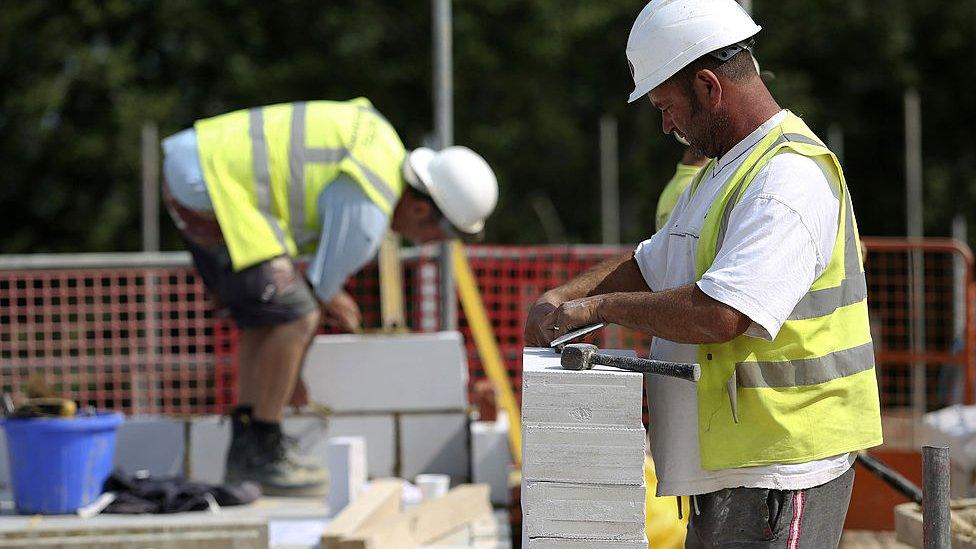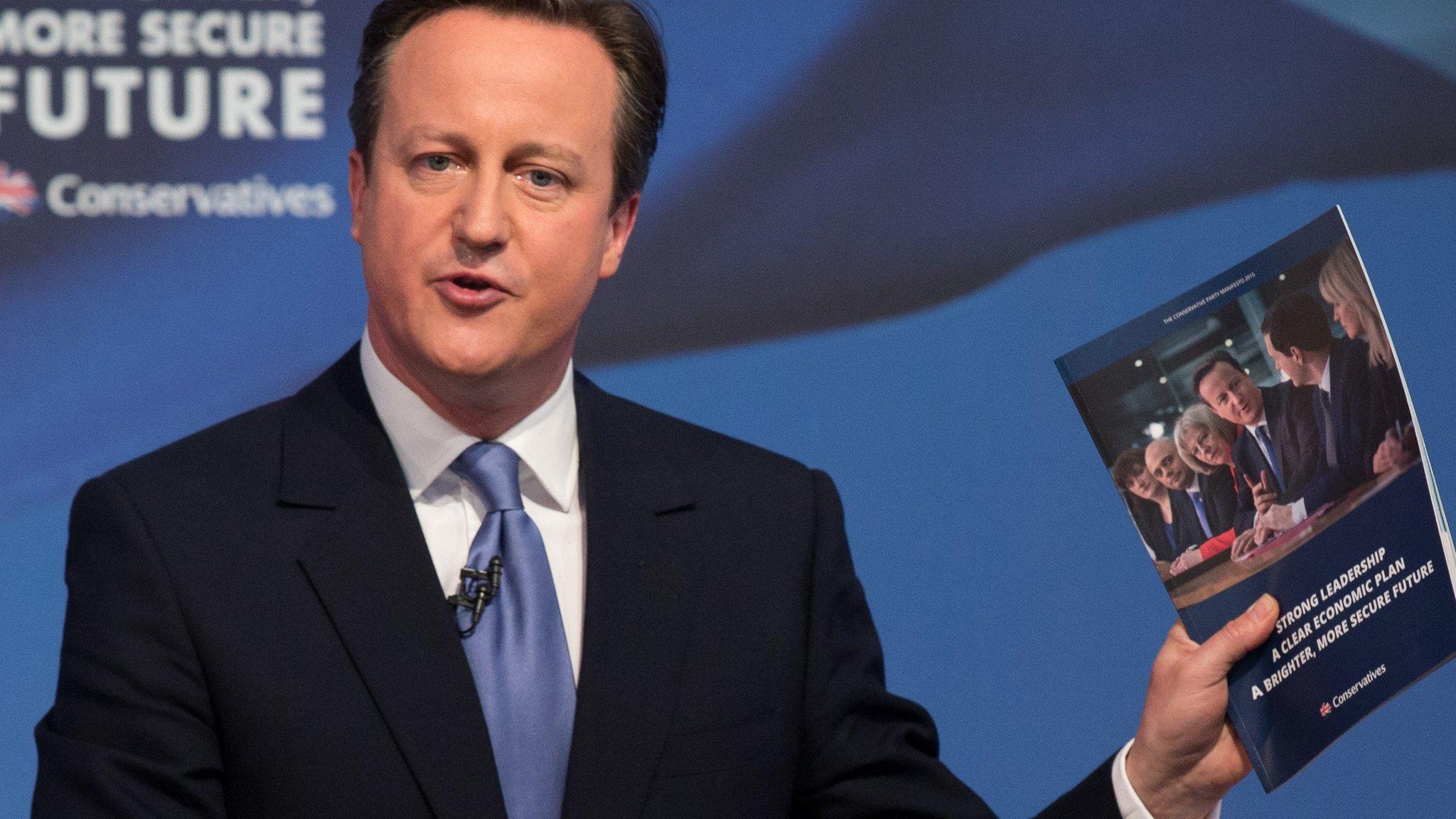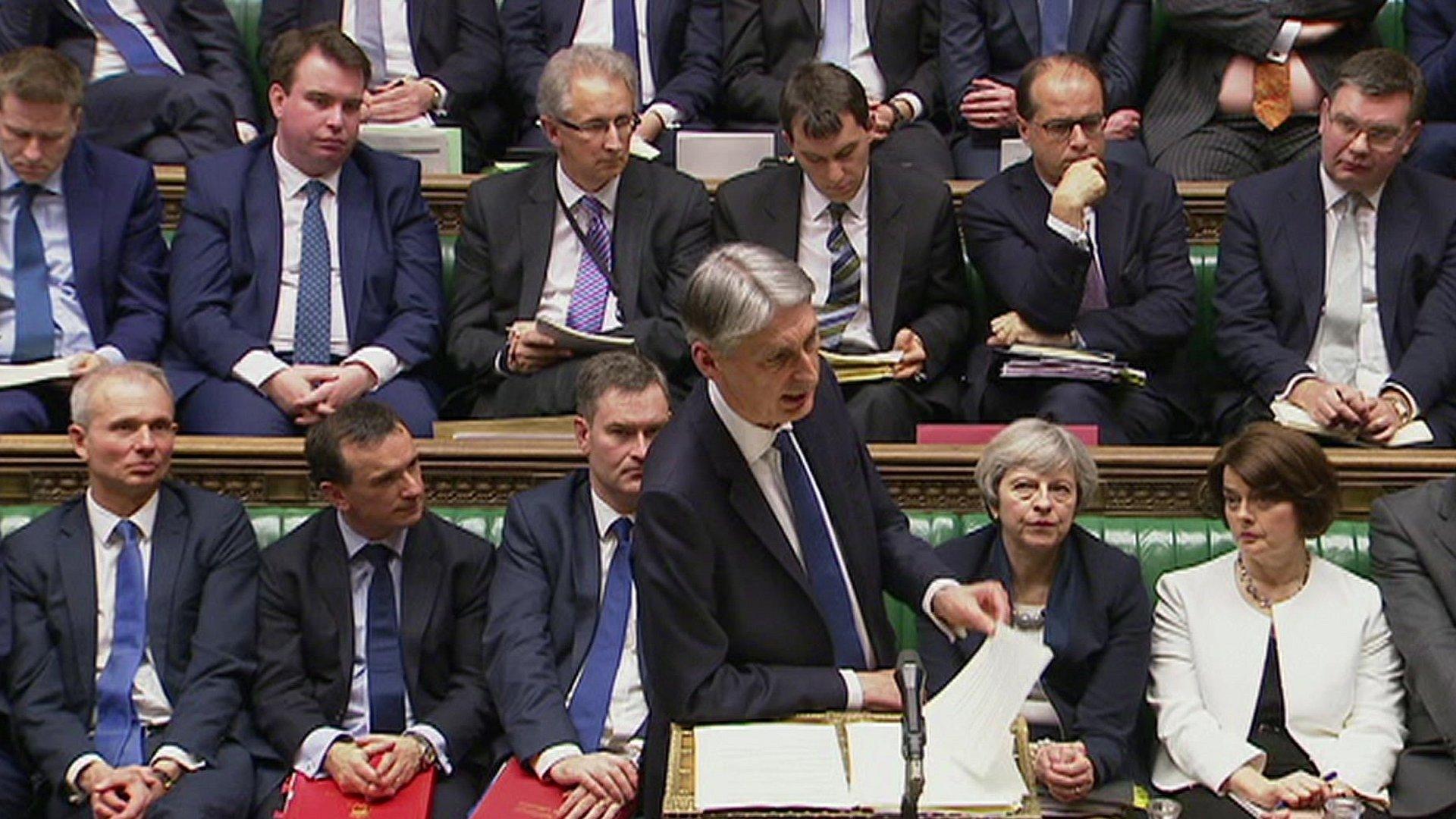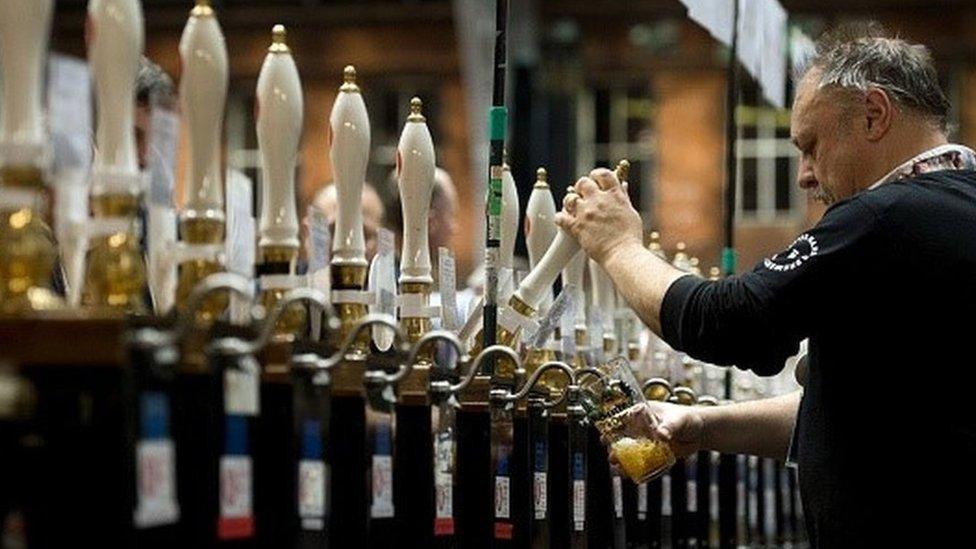Budget 2017: National Insurance rate rise criticised
- Published
- comments

Among those affected by the increases will be self-employed construction workers
Rises in National Insurance Contributions (NICS) for self-employed workers have been criticised as "penalising entrepreneurs".
Chancellor Philip Hammond announced in the Budget that the rate for Class 4 NICS would rise from 9% to 10% in April 2018, and to 11% in 2019.
That compares to 12% currently paid by employees.
"The difference in National Insurance Contributions is no longer justified," Mr Hammond said.
Self-employed people have traditionally paid lower NICS than employees, as they receive fewer state benefits.
But the chancellor said the self-employed now had equal access to the new state pension. He also said that the government would consult on parental benefits, some of which self-employed people cannot claim.
The chancellor said all self-employed people who earned less than £16,250 would be better off.
Around half of the 4.8 million workers registered as self-employed earn less than £13,000, according to the think tank the Resolution Foundation.
As a result it said most such workers - such as low-paid hairdressers - will be better off by 2019/20.

Winners and Losers

A self-employed hairdresser - with average earnings of £12,700 - will be £70 better off
A self-employed taxi driver - with average earnings of £17,300 - will be £20 worse off
A self-employed management consultant - with average earnings of £51,100 - will be £620 worse off.
source: Resolution Foundation

But the rise, which will cost those affected an average of 60p a week, was criticised by entrepreneurs.
"Increasing National Insurance rates for the self-employed could be a further step by the government to penalise those who are taking risks and starting a business," said Lucy-Rose Walker, the chief executive of Entrepreneurial Spark.
Others said it was unfair that the self-employed would have to pay more, when they do not receive the same level of state benefits.
"Self-employees are subject to a lower national insurance contribution because they do not receive the same entitlements and benefits as their employed counterparts - such as holiday and sick leave," said Chas Roy-Chowdhury, head of tax at the Association of Chartered Certified Accountants.


Those paid less than £16,250 will be better off because of a planned abolition of a different class of NICS - Class 2 - in April 2018.
Under Class 2 NICS, self-employed workers pay 2% on qualifying earnings between £5,965 and £8060, amounting to £2.80 a week.
The increase in the NICS rate will raise £145m a year for the Treasury by 2021-22.
Matthew Taylor, head of the Royal Society of Arts, is due to produce a report on how the self-employed are taxed later this year.
He has already said that the Treasury is missing out on millions of pounds, as a result of the workers who have been designated as self-employed.
- Published8 March 2017

- Published8 March 2017

- Published8 March 2017

- Published8 March 2017

- Published8 March 2017

- Published8 March 2017
